
(A SORRY TALE OF SUPERFICIALITY, MISUNDERSTANDINGS AND WOKE)
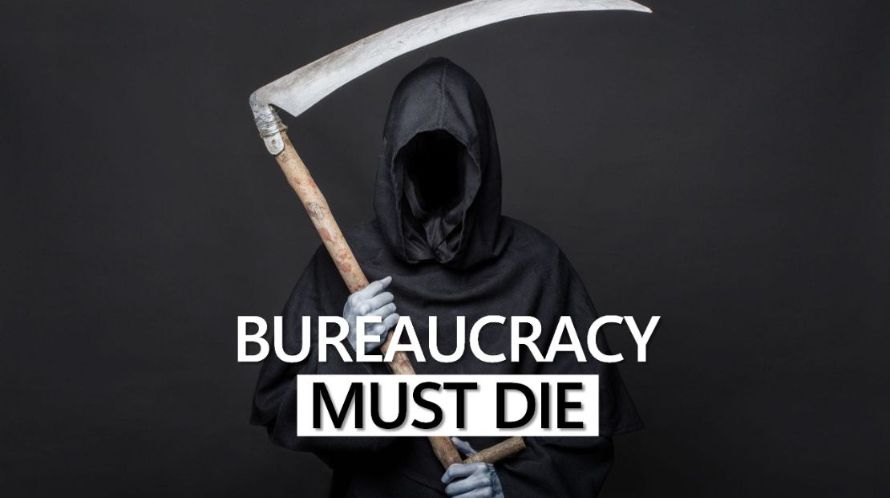
It seems that many of our current conversations about organizational and individual #transformation and #leadership have started to take undue and dangerous shortcuts to purport simplistic slogans and recipes, rather than promote deeper inquiry.
For instance, it seems that we have found a ready and easy scapegoat for all our relational and ecological troubles in the "human ego". But what most people seem to forget is that "ego" was just one part of the Freudian (somewhat simplistic) conceptualisation of personality. Freud indeed suggested the tripartite of 'Id-Ego-Superego' in order to explain how we shape our interactions with the world. In the model, the "ego" functions as the great arbiter between our innate "drives", the "id" (or better "It", from German "Es"), and the super-ego, the societal conditioning, to form our sense of Self. Hence, staying in Freud's model - rather than eliminating "our ego", which of course by definition is impossible, we need to embrace and embark on the famous "hero's [or heroine's] journey" of personal development.
It seems that many of our current conversations about organizational and individual #transformation and #leadership have started to take undue and dangerous shortcuts to purport simplistic slogans and recipes, rather than promote deeper inquiry.
For instance, it seems that we have found a ready and easy scapegoat for all our relational and ecological troubles in the "human ego". But what most people seem to forget is that "ego" was just one part of the Freudian (somewhat simplistic) conceptualisation of personality. Freud indeed suggested the tripartite of 'Id-Ego-Superego' in order to explain how we shape our interactions with the world. In the model, the "ego" functions as the great arbiter between our innate "drives", the "id" (or better "It", from German "Es"), and the super-ego, the societal conditioning, to form our sense of Self. Hence, staying in Freud's model - rather than eliminating "our ego", which of course by definition is impossible, we need to embrace and embark on the famous "hero's [or heroine's] journey" of personal development.
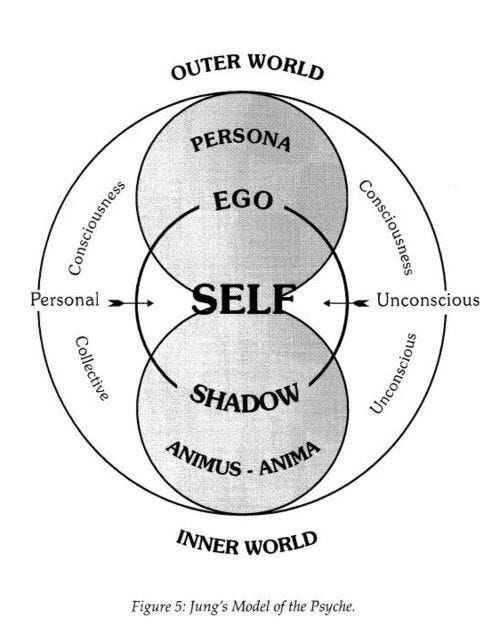
By reflecting on, understanding and mastering - throughout life - both our inner drives and our internalised societal norms, behaviours and rules - and by integrating our shadows, personas and animus/anima - we "individuate", as Carl Jung suggested. However, as it is easily seen in the terminology, the focus in the model is highly individual. We "become ourselves". Whereas Freud's driver theory was soon contextualised and rectified, for example by the attachment theorists and later Group Relations work at Tavistock, there remains an insufficient acknowledgment of "identity" formation as a relational process. What we call "identity" is a constant positioning of ourselves in a web of relations and relatedness. Herein also lies the crux for the "moral" aspect of personal development. When we say, the ego must die, what we really mean is that we must embrace that deeply emotional and embodied experience of "being related" to each other, and becoming responsible for one another. What is implied is that we must not be "ego-logical" or "egoistic" - because of a profound cognitive, emotional and experiential, and also "political" acknowledgment that we can only truly flourish together. In this context it is very important to realise that - in spite of much hype - it is simply not just about more individual "autonomy" and freedom, or even about individual mindfulness or meditation, but about vulnerably stepping into interdependence - which implies courageously "transcending" our fears and ego(isms) for the sake of a relational and common good.
And this gets us to the second feverish rallying cry that is echoing across all the intellectual temples of academics, management consultants and philosophers of sale: "Bureaucracy must die!" Whilst, of course, it sounds compelling I fear we are - again - making things too easy. Undoubtedly, there are those vampire-esque organisations wherein a cold, de-humanised role-based operating model is sucking the creative life-blood from defenseless yet innately creative, engaged and entrepreneurial individuals, but hierarchy as such is mostly not the issue. In fact, sorry to be the harbinger of bad news, but hierarchies and bueraucracies are and will remain our most widespread (and successful) forms of organising. Because, whenever things get complex, we must divide and conquer, and specialise and coordinate. Yet… of course, there are "enabling" and "controlling" hierarchies. Problems often start whenever hierarchical, or any other type of power unduly constrains the (reflexive and loving) potential of individuals, organisations and societies to "become the best" they can, and to create a positive future together. When organisational purpose becomes just the extraction of profit; when immature bosses abuse positional power for self-aggrandizement; when roles and tasks are unclear or priorities misaligned; when "functional stupidity" constrains necessary inquiry and creativity; and when teams or individuals cease to care for the shared purpose or each other. But blaming all that on a bureaucratic setup seems somewhat blue-eyed and simplistic - and probably means that people have never experienced the toxicity of some "anti-hierarchical" organisations.
As far as my experience goes, indeed, there simply are no silver bullets. Whenever scale and complexity increase in an organisation, as Max Weber suggested, we are at risk of moving from an initial "value rationality" to what he calls "instrumental rationality" - from focusing on our collective dream to instrumentalising people, resources and structures for an abstract utilitarian end. What matters most, therefore, is collective wisdom - our ability to continuously critically examine and evolve the way we are "organising" ourselves, for the good of all. Context, organizational setup, goals and incentives, culture and norms, roles, behaviors of both (alleged) leaders and followers… all have a critical role to play.
Ultimately, it doesn't really matter how we call our structures, how much we individually work on our development, and not even how much profit we make. Organisational Excellence is simply not just about what we produce, but - above all - how much we are able to "live a good life" whilst we are producing… What matters is how joyfully, together, we "LIVE life at work". Are we collectively flourishing? Wonderful. Are we not? Let's stop and honestly, compassionately, courageously, virtuously seek to figure out how to improve… day after day after day.
By reflecting on, understanding and mastering - throughout life - both our inner drives and our internalised societal norms, behaviours and rules - and by integrating our shadows, personas and animus/anima - we "individuate", as Carl Jung suggested. However, as it is easily seen in the terminology, the focus in the model is highly individual. We "become ourselves". Whereas Freud's driver theory was soon contextualised and rectified, for example by the attachment theorists and later Group Relations work at Tavistock, there remains an insufficient acknowledgment of "identity" formation as a relational process. What we call "identity" is a constant positioning of ourselves in a web of relations and relatedness. Herein also lies the crux for the "moral" aspect of personal development. When we say, the ego must die, what we really mean is that we must embrace that deeply emotional and embodied experience of "being related" to each other, and becoming responsible for one another. What is implied is that we must not be "ego-logical" or "egoistic" - because of a profound cognitive, emotional and experiential, and also "political" acknowledgment that we can only truly flourish together. In this context it is very important to realise that - in spite of much hype - it is simply not just about more individual "autonomy" and freedom, or even about individual mindfulness or meditation, but about vulnerably stepping into interdependence - which implies courageously "transcending" our fears and ego(isms) for the sake of a relational and common good.
And this gets us to the second feverish rallying cry that is echoing across all the intellectual temples of academics, management consultants and philosophers of sale: "Bureaucracy must die!" Whilst, of course, it sounds compelling I fear we are - again - making things too easy. Undoubtedly, there are those vampire-esque organisations wherein a cold, de-humanised role-based operating model is sucking the creative life-blood from defenseless yet innately creative, engaged and entrepreneurial individuals, but hierarchy as such is mostly not the issue. In fact, sorry to be the harbinger of bad news, but hierarchies and bueraucracies are and will remain our most widespread (and successful) forms of organising. Because, whenever things get complex, we must divide and conquer, and specialise and coordinate. Yet… of course, there are "enabling" and "controlling" hierarchies. Problems often start whenever hierarchical, or any other type of power unduly constrains the (reflexive and loving) potential of individuals, organisations and societies to "become the best" they can, and to create a positive future together. When organisational purpose becomes just the extraction of profit; when immature bosses abuse positional power for self-aggrandizement; when roles and tasks are unclear or priorities misaligned; when "functional stupidity" constrains necessary inquiry and creativity; and when teams or individuals cease to care for the shared purpose or each other. But blaming all that on a bureaucratic setup seems somewhat blue-eyed and simplistic - and probably means that people have never experienced the toxicity of some "anti-hierarchical" organisations.
As far as my experience goes, indeed, there simply are no silver bullets. Whenever scale and complexity increase in an organisation, as Max Weber suggested, we are at risk of moving from an initial "value rationality" to what he calls "instrumental rationality" - from focusing on our collective dream to instrumentalising people, resources and structures for an abstract utilitarian end. What matters most, therefore, is collective wisdom - our ability to continuously critically examine and evolve the way we are "organising" ourselves, for the good of all. Context, organizational setup, goals and incentives, culture and norms, roles, behaviors of both (alleged) leaders and followers… all have a critical role to play.
Ultimately, it doesn't really matter how we call our structures, how much we individually work on our development, and not even how much profit we make. Organisational Excellence is simply not just about what we produce, but - above all - how much we are able to "live a good life" whilst we are producing… What matters is how joyfully, together, we "LIVE life at work". Are we collectively flourishing? Wonderful. Are we not? Let's stop and honestly, compassionately, courageously, virtuously seek to figure out how to improve… day after day after day.
Other popular articles in the KnowledgeHub: Business Transformation
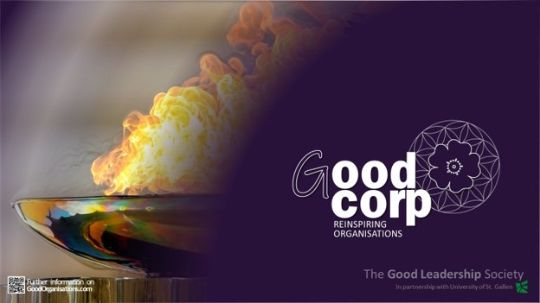

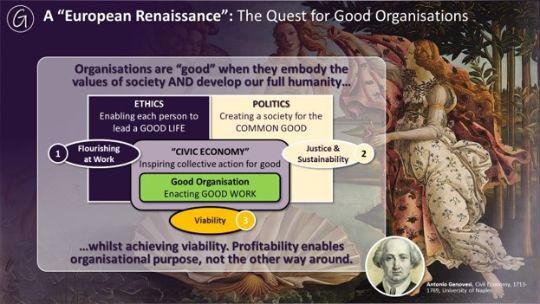
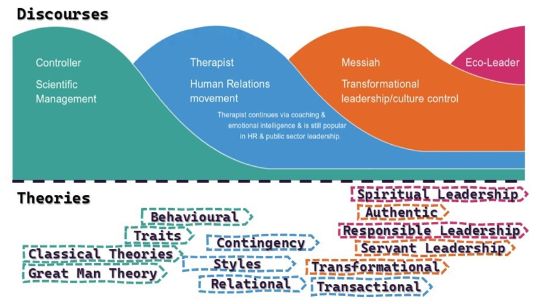
 .
.